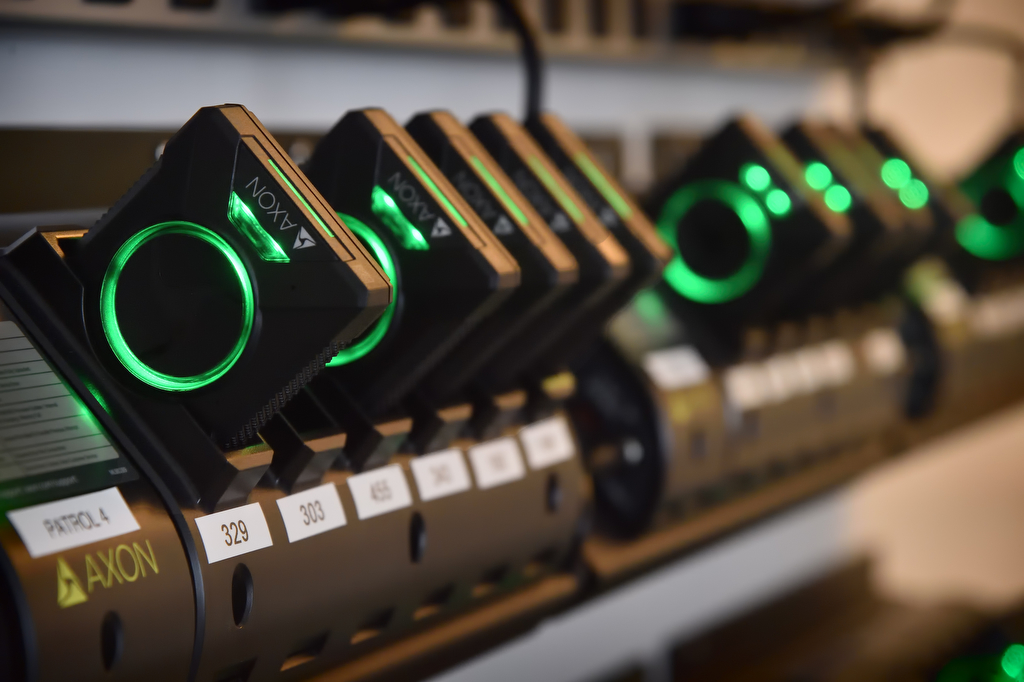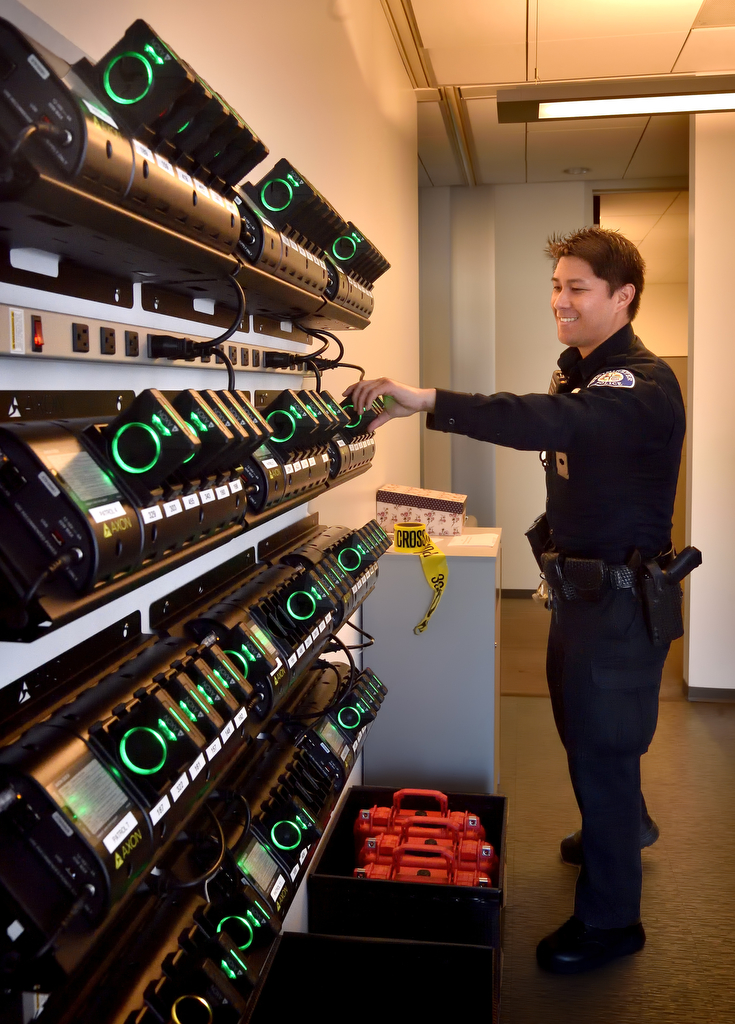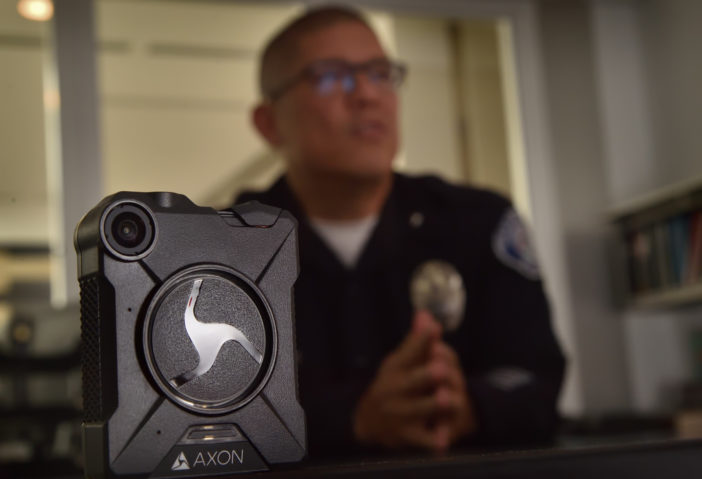The Westminster Police Department has joined the growing number in law enforcement to adopt the use of body-worn cameras as a way to capture video during police officer interactions with the public.
Following a nine-month trial period with tech company Axon, the agency officially rolled out its body cameras April 1 to all patrol officers as well as detectives.
“Every officer has a camera issued to him or her in the field,” Commander Alan Iwashita said.
The use of body cameras has become a hot-button topic for the public and law enforcement community, Iwashita said.
“In law enforcement, there’s been a significant move toward transparency in the public,” Iwashita said, adding that the body cams are a means toward that end.
The small, square-shaped, lightweight cameras are picked up from charging stations by officers at the start of their shift. At the end of their shift, they return the cameras to charge and also to upload footage to Axon’s secure cloud servers. This footage is stored for authorized members of the Westminster Police Department and for the district attorney’s office for possible use as evidence.

Axon BodyCams are now in use by Westminster police officers, shown here in the docking stations that simultaneously download the day’s videos to the department’s video archive as well as charging the devices.
Photo by Steven Georges/Behind the Badge
The recent roll-out has gone smoothly, according to Iwashita. A significant amount of research was done on the cameras for about eight months before the trial, Iwashita said. At this time, the agency reached out to other agencies in Orange County and Los Angeles that had already implemented body cams for their officers.
With the help of those agencies, the Westminster Police Department developed a policy for body cam use before the trial period began. The department’s IT department also benefited from assistance from some of those agencies in setting up the system. During the trial period, the body cams were rolled out to 12 officers initially. The cameras were then phased in for the rest of patrol throughout the trial period.
Iwashita said officers have been using audio recorders for nearly 20 years while on patrol, so they most likely didn’t notice much of a difference.

Westminster Police Department’s Officer Laurence Kubota docs his new body video camera to charge as well as download the day’s videos into a department database.
Photo by Steven Georges/Behind the Badge
“The only difference really is these capture video instead of audio only,” Iwashita said.
The benefit of capturing video is two-fold, he said. One function of the cameras is to provide officers with a more detailed and accurate account of calls for the purposes of their reports.
Another is offering complete footage of interactions between officers and members of the public in case there’s any dispute about what might have happened. The device has the added benefit of recording from 30 seconds before the officer pushes the record button so that footage is as complete as possible.
“It also assists with allegations of police officer misconduct,” he said. “It’s another resource to thoroughly investigate these types of claims.”
The body cam footage Iwashita has seen has all reaffirmed that Westminster’s officers are doing good police work.
“It shows that our officers are doing the right thing,” Iwashita said. “It just confirms what we’ve believed all along and now we can show it.”
 Behind the Badge
Behind the Badge



